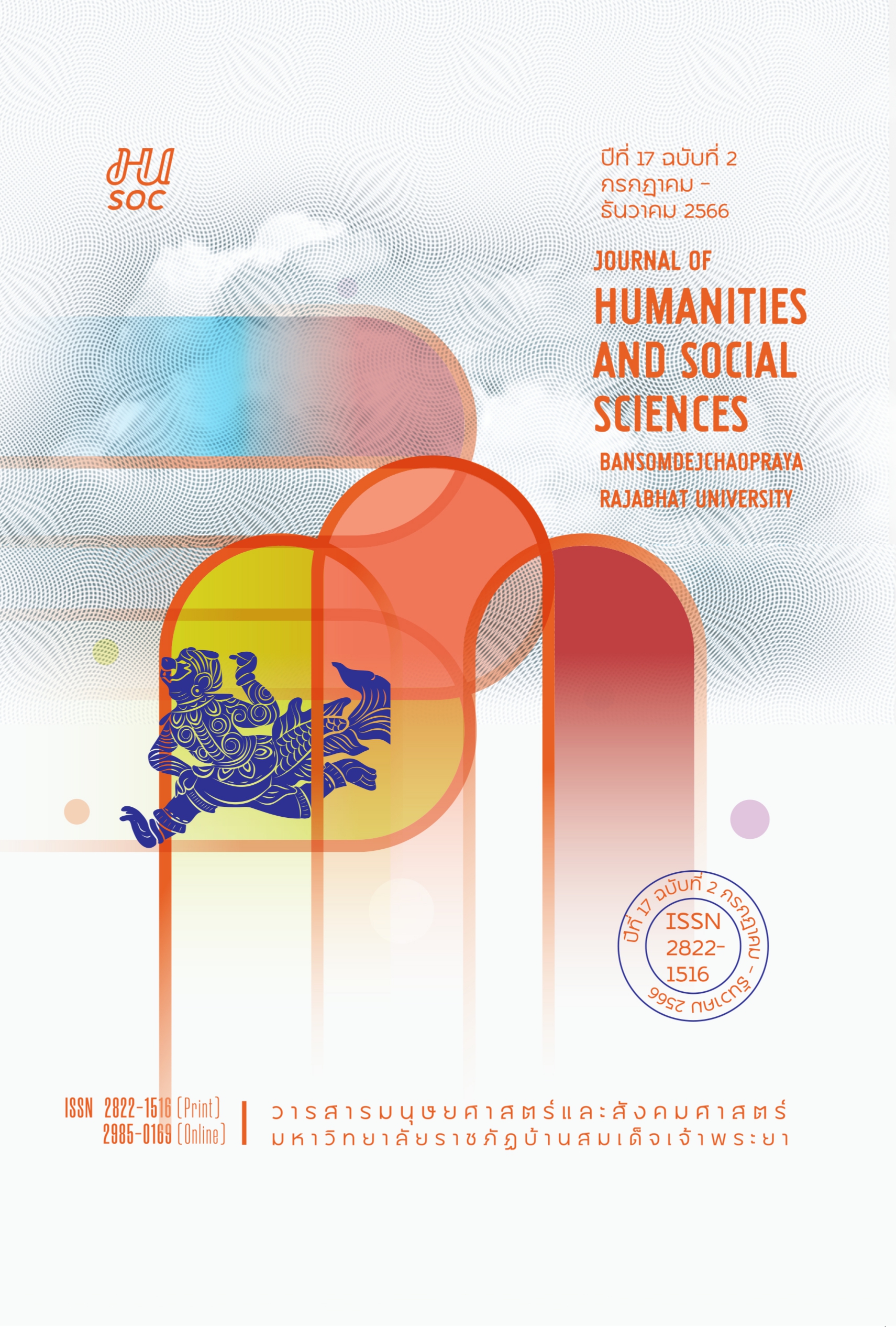A Survey on the Role of Local Government Organizations in Managing The COVID-19 Pandemic Crisis
Keywords:
Decentralization, The Role of Local Government, COVID-19 ManagementAbstract
This survey research aims to explore the role of local governments in managing the first wave of the COVID-19 pandemic crisis. This study relied on 2 conceptual frameworks: the concept of decentralization and the concept of public administration in the crisis period by conducting the quantitative research through collecting questionnaires from 2,138 local government organizations from January to July 2020, the period of the first wave of COVID-19 pandemic. The overall survey results confirmed that (1) the local governments were affected by the first wave of COVID-19 pandemic, with an average of 69.30% of the total samples. The City Municipality was the most affected with an average of 86.70%, followed by the Town Municipality (72.30%), Provincial Administrative Organization (64.30%), Sub-District Municipality (63.60%) and Sub-District Administrative Organization (59.50%), respectively; (2) The majority of local government organizations (99.60%) played a significant role in managing the first wave of COVID-19 pandemic crisis; and (3) Most local governments have played a significant role in preventing the spread of the disease at the community level, with an average of 71.27 % of the total samples, followed by the role in helping people and socially vulnerable groups (59.30 %) and preparing for other crises that may occur in the future (53.34 %), respectively. On the other hand, it is found that the local government still has a very little role in adjustment to the work of the organization and preparation for local rehabilitation in the post-COVID era as seen in the average scores of 39.59% and 37.10%, respectively.
References
กิตติพัฒน์ แสนทวีสุข. (2560). บทบาทของระบบข้อมูลเพื่อการตัดสินใจและเครื่องชี้วัดการพัฒนาจังหวัด. วารสารเศรษฐศาสตร์และกลยุทธ์การจัดการ. 4(2), 76-84.
กองพัฒนาข้อมูลและตัวชี้วัด สำนักงานสภาพัฒนาการเศรษฐกิจและสังคมแห่งชาติ. (2564). รายงานภาวะสังคมไทยไตรมาสหนึ่งปี 2564. ภาวะสังคมไทย. 19(2), 1-18.
ข้อกำหนดออกตามความในมาตรา 9 แห่งพระราชกำหนดการบริหารราชการในสถานการณ์ฉุกเฉิน พ.ศ. 2558. (2563, 25 มีนาคม). ราชกิจจานุเบกษา เล่ม 137 ตอนพิเศษ 69 ง.
คำสั่งนายกรัฐมนตรี ที่ 4/2563 เรื่อง แต่งตั้งผู้กำกับการปฏิบัติงาน หัวหน้าผู้รับผิดชอบ และ พนักงานเจ้าหน้าที่ในการแก้ไขสถานการณ์ฉุกเฉิน. (2563, 25 มีนาคม). ราชกิจจานุเบกษา เล่ม 137 ตอนพิเศษ 69 ง.
จิราภรณ์ ศรีแจ่ม. (2563). วันที่ไทยรู้จัก COVID-19. สืบค้น 30 สิงหาคม 2565. http://news.thaipbs.or.th/content/290347.
นภัทร ชัยธราโชติ. (2565). การบริหารจัดการภาวะวิกฤติจากสถานการณ์การแพร่ระบาดของเชื้อไวรัส COVID-19. วารสารมจร พุทธปัญญาปริทรรศน์. 7(4), 278-291.
ประกาศสถานการณ์ฉุกเฉินในทุกเขตท้องที่ทั่วประเทศ. (2563, 25 มีนาคม). ราชกิจจานุเบกษา เล่ม 137 ตอนพิเศษ 69 ง.
พระราชบัญญัติระเบียบบริหารราชการแผ่นดิน พ.ศ. 2534 และที่แก้ไขเพิ่มเติม, มาตรา 38. (2534, 21 สิงหาคม). ราชกิจจานุเบกษา เล่ม 108 ตอน 156 ฉบับพิเศษ. น. 16.
วาสนา ยี่รงค์. (2563). การถ่ายโอนภารกิจสู่องค์กรปกครองส่วนท้องถิ่น: ความก้าวหน้าและปัญหาอุปสรรคในการถ่ายโอน. วารสารรัฐประศาสนศาสตร์. 18(2), 263-278.
สถาบันวิจัยเพื่อการพัฒนาประเทศไทย. (2563). ความเปราะบางของประชาชนกลุ่มเปราะบางภายใต้โควิด-19. สืบค้น 30 สิงหาคม 2565. https://tdri.or.th/2020/06/impact-of-covid19-on-vulnerable-groups/
สุชาติ ประสิทธิ์รัฐสินธุ์. (2529). การศึกษาการเปลี่ยนแปลง: ความเป็นเมืองการเติบโตของเมืองและการย้ายถิ่น. วารสารพัฒนบริหารศาสตร์, 26(3), 340-380.
สุรีย์พร พันพึ่ง. (2564). วิกฤติโควิด-19 กับความเป็นเมือง. วารสารประชากรและการพัฒนา, 42(1), 1-2.
อรทัย ก๊กผล และคณะ. (2564). รายงานสถานการณ์การกระจายอำนาจประจำปี พ.ศ. 2564: บทสำรวจว่าด้วยบทบาทขององค์กรปกครองส่วนท้องถิ่นกับการจัดการวิกฤตโควิด-19 (รายงานวิจัย). สถาบันพระปกเกล้า.
Downloads
Published
How to Cite
Issue
Section
License
Copyright (c) 2023 Faculty of Humanities and Social Sciences Bansomdejchaopraya Rajabhat University

This work is licensed under a Creative Commons Attribution-NonCommercial-NoDerivatives 4.0 International License.




